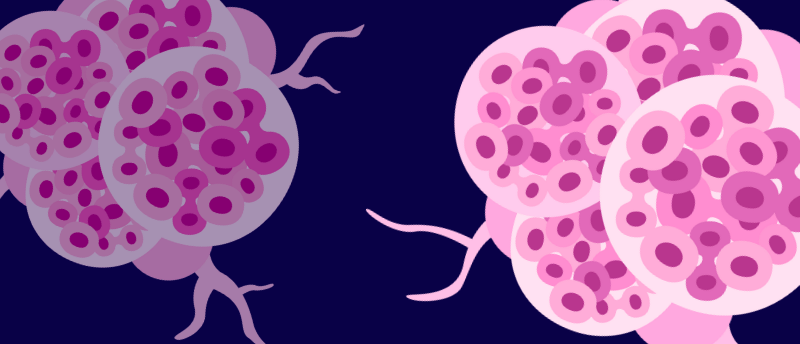A genomic test for predicting chemoresistance

Original story from Cancer Research UK, Cambridge Centre.
A genomic test for successfully predicting whether cancer will resist common types of chemotherapy has been developed.
Cancer Research UK (CRUK) funded scientists at the University of Cambridge (UK), in collaboration with the Spanish National Cancer Research Centre (CNIO; Madrid, Spain) and Cambridge-based startup Tailor Bio (UK), have created a test which can successfully predict whether cancer will resist common forms of chemotherapy treatment.
It works by looking at changes to the order, structure and number of copies of DNA within the cancer – known as chromosomal instability (CIN) signatures. These signatures are found by reading the full DNA sequence of the tumor and looking for patterns in how the chromosomes are disrupted when compared to normal cells.
The test can then accurately predict resistance to treatment of three common types of chemotherapy – platinum-based, anthracycline and taxane chemotherapy. In the future, scientists hope that this test could be used in diagnosis to predict how likely each type of chemotherapy will work against different cancers. This would allow them to offer tailored treatment, by avoiding giving patients chemotherapies which won’t work for them.
“Our technology makes sense of the genomic chaos seen in many tumors treated with chemotherapy. It links patterns of DNA mutation to the mechanisms that caused the damage. This provides a read-out of the defective biology in the tumor which we can use to predict resistance to the mechanism of action of common chemotherapies,” stated first author Geoff Macintyre (CNIO and Tailor Bio).

Novel tool for visualizing cancer cell dynamics
A fluorescent probe for visualizing the signaling dynamics in metastatic cancer cells has been developed.
Co-lead Ania Piskorz (CRUK) added, “It was important to us to create a test that could be easily adopted in clinic, using material we already collect during diagnosis and well-established genomic sequencing methods. The test is based on the full DNA sequence that we get from these methods, and we can adapt it to work alongside other genomic sequencing methods that are commonly used to personalise treatment for cancer.”
The test was piloted using data from 840 patients with different types of cancer. It was used to classify patients as either “chemotherapy resistant” or “chemotherapy sensitive”, after which they were virtually assigned to a different type of chemotherapy treatment to find out how long it took for the treatment to stop working. This approach emulated a randomised controlled trial by allowing the scientists to predict patient responses to chemotherapy, without altering the treatment the patients received.
The trial found that patients who had predicted resistance to taxane chemotherapy had a higher treatment failure rate for ovarian metastatic breast and metastatic prostate cancer. Patients who had predicted resistance to anthracycline chemotherapy had a higher treatment failure rate for ovarian and metastatic breast cancer. Patients who had predicted resistance to platinum chemotherapy had a higher treatment failure rate for ovarian cancer.
The technology behind the test was developed at the University of Cambridge with funding from Cancer Research UK. Cancer Research Horizons, the charity’s innovation arm, then licensed the technology to Tailor Bio, a company which creates targeted treatments for cancers with CIN signatures.
Working with the CNIO in Madrid and Tailor Bio, the scientists at the Cancer Research UK Cambridge Institute will carry out further analysis of the test and will be applying to regulators for use in clinic. The scientists are also developing further tests for other targeted cancer drugs to find out how widely the technology could be used across different cancer types.
“The days of chemotherapy being offered as a ‘one-size-fits-all’ treatment are ending. Thanks to this research, and others like it, we are moving towards a future where personalized cancer treatment is an option for many patients. Only by delivering more optimised, successful treatment will more people live longer, better lives, free from the fear of cancer,” concluded Iain Foulkes (CRUK).
This article has been republished from the following materials. Material may have been edited for length and house style. For further information, please contact the cited source. Our press release publishing policy can be accessed here.